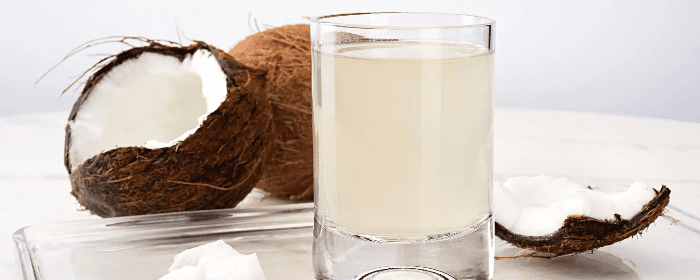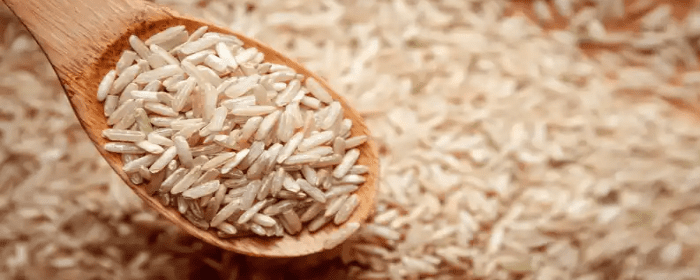
by admin | Nov 10, 2021 | Health Awareness
Coconut water is the liquid found inside fresh, green coconuts. It is part of the nourishment the coconut absorbs as the drupe matures. Coconut water contains very little fat—don’t confuse it for coconut milk (high in fat)—and is approximately 94% water.
If you do not already include coconut water in your healthy diet, the seven reasons offered below may help convince you to try it.
1. Rich in Antioxidants
Protecting cells from damage caused by free radicals (unstable molecules) is an important part of protecting your health. The antioxidants such as L-arginine and Vitamin C found in coconut water help fight the effects of oxidative stress and protect your health at the cellular level.
2. Supports Heart Health
In a controlled scientific study, rats fed coconut water reduced both their cholesterol and triglyceride levels. Coconut water’s high potassium content may be the reason for improved numbers.
3. Replenishes Electrolytes
Coconut water is often recommended to restore electrolyte levels after exercise. That’s good advice. Coconut water contains significant amounts of potassium, magnesium, calcium, and sodium and is more beneficial for rehydration than plain water.
4. Promotes Kidney Health
Getting plenty of fluids is important to support good kidney health and prevent kidney stones from forming. Coconut water helps to increase the elimination of calcium and other compounds that form tiny crystals known as kidney stones.
5. May Lower Blood Sugar
Research using diabetic animals has shown coconut water to help reduce blood sugar levels. As a good source of magnesium, coconut water may help reverse insulin resistance and decrease blood sugar levels in patients with prediabetes and type 2 diabetes.
6. It’s Nutritious
Coconut oil is packed with nutrients and low on calories (about 60 calories per cup). A single cup provides about 4% of the DV for calcium and magnesium and 15% of the DV for potassium.
7. It Tastes Great
Coconut water is not a replacement for plain water and should be consumed in small portions as part of a healthy diet. However, it is a delicious and lower-calorie substitute for fruit juice enjoyed as is or mixed with over beverages.
For more health awareness blogs, please visit www.stemedix.com/blog.

by admin | Nov 3, 2021 | Health Awareness
Over the last few years, medical professionals and researchers have emphasized the importance of gut microbiome health. Specifically, some professionals have started systematically mapping the interactions between gut bacteria and drugs. One such study demonstrated that certain gut bacteria are accumulating human drugs, altering the function of these organisms.
By gaining a better understanding of the impact of oral medications on gut health, researchers can potentially reduce side effects and improve the efficacy of these drugs.
What Is the Gut Microbiome?
The gut microbiome refers to the trillions of bacteria and microorganisms that live within your GI tract. These bacteria play a key role in several critical functions, such as the digestion of food and absorption of nutrients. Gut microorganisms also influence other processes such as immune regulation and metabolism. If the gut microbiome is out of balance, it can have far-reaching health effects.
The Study
During the study, researchers grew 25 of the most common gut bacteria in a lab setting. They then exposed these organisms to 15 different oral medications. The researchers selected medications used to treat a wide range of conditions. The scientists discovered a total of 70 interactions between drugs and bacteria, 29 of which had not been reported previously.
After identifying the 29 new interactions, researchers conducted further tests. They determined that in 17 of these interactions, the medication accumulated in the microorganisms without changing to their chemical makeup. A few of these drugs include rosiglitazone (anti-diabetic medication) and duloxetine (antidepressant).
Potential Risks of the Bioaccumulation of Medications
The bioaccumulation of these medications poses two main risks to patients. First, the drugs may become less effective over time. This is especially concerning when discussing anti-diabetic and antidepressant medications, as reduced effectiveness can negatively impact patients.
How Do I Find Out If My Gut Microbiome Is Healthy?
If you are experiencing GI issues or just want to ensure that your gut microbiome is functioning properly, the best way to learn more about your overall gut health is through medical testing. A GI test will help medical professionals assess the root cause of most gut health complaints. They will also be able to suggest targeted treatment protocols to address your specific gut health issues.
If you would like to learn more about Precision Health testing or are interested in supplements that may benefit gut health, contact Stemedix today.

by admin | Oct 20, 2021 | Health Awareness, Pain Management
Millions of people rely on oral supplements to mitigate the effects of joint pain and arthritis. While these supplements can provide some relief, it is important to choose the right products. A few of the more popular options include glucosamine, omega-3 fatty acids, and chondroitin.
If you or a loved one are struggling with joint pain, then you may want to consider adding these supplements to your daily regimen:
Vitamin D
Vitamin D plays an important role in bone strength. Inadequate levels of vitamin D can contribute to injuries and joint pain. Oral vitamin D supplements are affordable and can help you avoid these potential issues.
Glucosamine
Your body uses glucosamine to maintain healthy cartilage. Since cartilage acts as the cushion or shock absorber for your joints, it is essential for preventing joint pain. Glucosamine also has anti-inflammatory properties.
Chondroitin
Many glucosamine supplements also contain chondroitin. Together, these two supplements can reduce the symptoms of osteoarthritis. Chondroitin has been linked to better mobility, reduced pain, and less dependence on pain medications.
Omega-3
Omega-3 supplements like fish oil are often discussed due to their potential heart health benefits. However, they may also help reduce stiffness associated with chronic inflammation.
Curcumin/Turmeric
Curcumin, which is the active ingredient found in turmeric, has been linked to joint pain relief. This treatment likely works because curcumin has strong anti-inflammatory properties.
Green Tea
Green tea is packed full of antioxidants and anti-inflammatory micronutrients. As a result, it may be beneficial for combating joint pain and stiffness. However, more research is needed to understand its effects fully.
While all of the supplements outlined above can help reduce arthritis and joint pain severity, medical intervention may still be necessary. In the past, this meant potentially harmful oral medications or invasive surgical procedures.
Another possible treatment option is stem cell therapy. While stem cell therapy is still being studied, many patients have experienced benefits using this intervention. It has allowed them to regain a better quality of life while also avoiding invasive surgery or healing from surgery.

by admin | Oct 20, 2021 | Health Awareness
Recently, numerous studies have demonstrated that exercise is excellent for your immune system. Regular physical activity also has mood-boosting benefits. Having an immune system that is functioning properly is vital, especially in light of the recent pandemic.
Currently, the exact reasons as to why exercise boosts immunity are not entirely understood. However, it likely has something to do with an increase in white blood cell and antibody circulation during vigorous activity. In addition, regular exercise hinders certain stress hormones, which have been linked to diseases and reduced immunity.
Unfortunately, in today’s busy world, finding the time to exercise can be quite challenging. It can be difficult to squeeze in that workout between work, social obligations, plans with the family, and any other responsibilities that you may have on your plate. With that in mind, we wanted to highlight which exercise is the best for your immune system. That way, you can efficiently protect your health, even if you are in a time crunch.
Which Exercise Is Best?
While consistently getting up and moving is vital, you do not have to deadlift 500lbs, attend spin class seven days a week, or train as a triathlete to experience the immune system-related health benefits of exercise. All you need to do is go for a brisk walk of 30 minutes or more. Simply going for regular walks will increase white blood cells and antibodies.
However, these elevated levels of antibodies and white blood cells do not last forever. If you want to maximize the benefits of walking, then you should exercise consistently. You should aim for 30 minutes of moderate activity daily or every other day. Even if you do get sick, your symptoms are more likely to be mild when compared to your more sedentary counterparts.
In addition to regular exercise, you should also eat a healthy diet and supplement with vitamins and minerals. You can also add healthy beverages like lemon water and green tea. Prioritizing sleep is an additional regimen that can help your immune system stay healthy.

by admin | Oct 13, 2021 | Multiple Sclerosis, Health Awareness, Stem Cell Therapy
Several million people across the globe are living with the condition known as MS or multiple sclerosis. The majority of them were diagnosed with this condition between 20-40 years of age.
Due to the complexity of the condition, diagnosing MS requires a multi-stage testing process. Once a positive diagnosis has been obtained, patients have several treatment options available to them, which we’ll outline below.
The Diagnosis Process
To diagnose multiple sclerosis, doctors rely on a variety of tests that are designed to rule out other medical conditions. This is necessary because there are no specific diagnostic procedures for detecting MS. The diagnosis process may include:
Blood Tests: During initial testing, blood samples are used to rule out common conditions that present similar symptoms to MS. These blood tests also check for unique biomarkers that are associated with MS.
Spinal Tap: Depending on the results of the blood tests, the physician may schedule a spinal tap next. This test involves puncturing the lumbar spine in order to remove a small amount of cerebrospinal fluid. The fluid is then subjected to laboratory analysis and checked for abnormal antibodies linked to MS.
MRI: An MRI or magnetic resonance imaging test is used to identify lesions on the spinal cord and brain. These lesions are a common sign of MS. Oftentimes, patients receive an IV injection of a “contrast material.” This substance helps to highlight legions during the MRI scan.
Evoked Potential Tests: An evoked potential test documents electrical signals that are created by your nervous system. It can use electrical stimuli or verbal stimuli in order to prompt your nervous system to create impulses. The goal of this test is to determine how fast information is traveling down nerve pathways.
MS Treatment Options
While MS has no cure, there are several viable treatment options available. These treatments can enhance the quality of life of MS sufferers and mitigate their symptoms. MS treatments include:
Corticosteroids: Corticosteroids are used to reduce nerve inflammation. They can be administered orally or through an IV. However, corticosteroids do present a risk for several side effects, such as insomnia and increased blood sugar.
Plasma Exchange: Plasma is the liquid component of blood. During this treatment, the plasma is removed and separated from the patient’s blood cells. The cells are combined with albumin (protein solution) and put back into the patient’s body.
Stem Cell Therapy: Stem cell therapy is an alternative treatment option for patients with MS. It is being used to potentially help patients suffering from symptoms of neurodegenerative conditions. Stem cells stimulate the body’s natural healing capabilities and have the potential to help manage MS symptoms. If you or a loved one suffers from MS, stem cell therapy may be an option to explore as an alternative treatment.

by admin | Oct 6, 2021 | Health Awareness
In recent years, people across the nation have become more conscious of the foods they consume. You may have implemented basic detoxing tips or started to work on cleaning up your diet.
However, one of the most popular whole grains out there has some hidden side effects that you should know about. While it is often considered a healthier alternative to white rice, brown rice may have some effects to consider.
Brown Rice Contains Small Amounts of Arsenic
Arsenic is a toxic chemical that may be present in brown rice. This toxin has been associated with an increased risk of diabetes, heart disease, and cancer.
Some studies suggest that rice contains concentrations of arsenic that are up to 10 times that of other grains. If you decide to eat brown rice, do so in limited quantities and make sure to rinse it thoroughly before cooking, as this can help reduce the concentration of arsenic.
Brown Rice Can Cause Digestive Issues
Brown rice is richer in fiber than white rice and many other grains. While consuming more fiber has its benefits, some individuals are sensitive to it. In those individuals, excessive brown rice consumption can cause digestive distress, such as constipation or bloating.
To reduce your risk of experiencing this side effect, you may want to consider limiting your grain intake. Working anti-inflammatory foods into your diet can also be beneficial for your overall wellbeing.
Brown Rice Can Elevate Your Blood Sugar
Especially when consumed in large quantities, brown rice can elevate your blood sugar. It has about as many carbs per serving as white rice, which means that you should consume it in moderation.
While eating brown rice certainly has its benefits, you should be aware of how much you are consuming at any one meal. When incorporated into a healthy way of eating, brown rice is an enjoyable grain that pairs well with just about any protein.







 St. Petersburg, Florida
St. Petersburg, Florida
